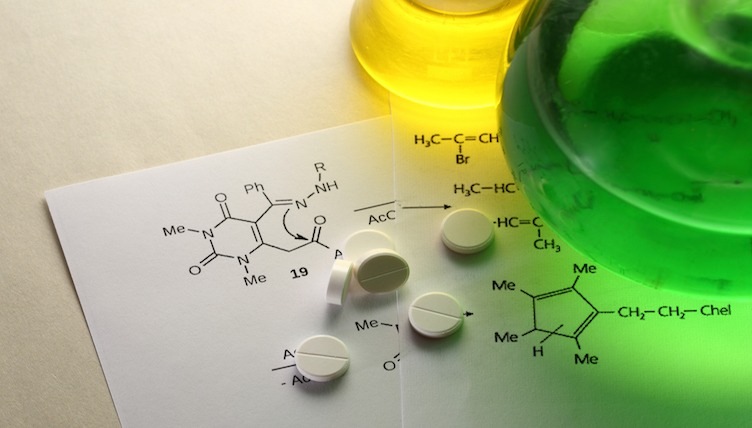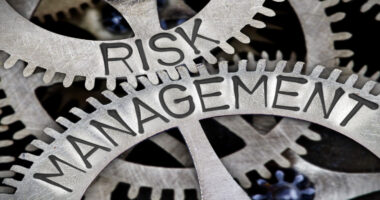Manufacturing and Supply Lines: Fine Chemicals
Rising energy and raw materials costs are two key factors impacting the chemical manufacturing value chain for intermediates and small-molecule APIs. What other key developments and trends are impacting the fine-chemicals market?
Rising energy and raw materials costs
Medicines for Europe, which represents generics and biosimilars manufacturers in Europe, is underscoring that continuing inflationary pressures in Europe require pharmaceutical legislative reforms in the European Union (EU) to address security of supply for medicines and access to medicines. It notes that high inflation cross Europe (+ 9%) and steep rises in the price of energy, raw materials (estimated at between +50 and 160%) and transportation (up to +500%) are significantly increasing costs for manufacturers. At the same time, it says that “rigid pricing policies force down the price of essential medicines to unsustainable levels, threatening their availability,” according to a November 16, 2022 statement from Medicines for Europe.
“…The EU must also tackle the huge threat that inflation poses for medicine manufacturing and supply,” said Elisabeth Stampa, President of Medicines for Europe, in the November 16, 2022 statement. ”Our industry needs market adjustments to cover the cost of inflation or medicines supply will be at risk.” Stampa made the statement at an event held under the patronage of the Czech Presidency of the EU,
To address these issues, Medicines for Europe is calling on EU officials to do the following: (1) develop policies to encourage generic and biosimilar medicines use to broaden patient access; (2) tackle the impact of inflation on the security of essential medicine supplies with smart procurement guidelines for medicines; (3) allow the off-patent medicines industry access to EU funds for manufacturing investments; and (4) optimize the regulatory system to improve access to medicine and to benefit from efficiency gains made from increased digitalization.
Erosion of fine chemicals manufacturing base in the EU
While inflationary pressures are front and center in the fine chemicals and pharmaceutical industries in Europe, the erosion of the manufacturing base for active pharmaceutical ingredients (APIs) in Europe has been a multi-decade-long trend and an issue that gained greater visibility as EU policymakers seek to address the vulnerability of the EU health system, including the supply of medicines, which was exposed during the COVID-19 pandemic. The shift in the EU’s share of global API supply reveals that trend. Europe’s share of global API production declined from 53% in 2000 to 25% in 2020, according to information from a November 16, 2022 joint paper on APIs in Europe issued by Medicines for Europe and the European Fine Chemicals Group (EFCG), which represent fine chemical producers in Europe. During this same time, India and China have increased their share of API supply into Europe: 56% of EU API supply currently originates from India and China. If raw materials and intermediates are taken into account, the EU’s dependency becomes even more pronounced as the EU relies on other world regions for 74% of its APIs.
In their joint paper, Medicines for Europe and the EFCG point to multiple reasons for the shift of API production to other regions. Chief among them, according to these two industry groups, is low pricing imposed on the finished drug, which in turn requires low-priced APIs. Other reasons cited by Medicines for Europe and the EFCG are the costs of compliance with EU social and environmental standards on manufacturing costs, which while important to have such standards, add additional costs for API production, up to 30% of expenditures. These costs have favored the relocation of production capacities to Asia. Other reasons cited by Medicines for Europe and the EFCG for shifting API production in Europe are: (1) policy on the procurement of medicines that focuses on price alone as a decision factor to the detriment of other factors, such as social responsibility, security of supply, and environmental footprint; (2) a lack of dedicated investment, support and incentives to stimulate European API production and innovation in greener manufacturing processes; and (3) administrative burdens that are cost- and time-inefficient.
Recommendations to increase Europe’s API production
In their joint paper on European API production, Medicines for Europe and the EFCG said that financial, policy, and administrative support mechanisms are necessary to maintain API production in Europe and to drive relocation. It made several recommendations that would support API production in Europe as outlined below.
Investment enhancement. Medicines for Europe and the EFCG are calling on national governments in Europe and the EU to support investments that stimulate the construction or modernization of production facilities and the adoption of innovative manufacturing technologies. From a mainly small- and medium-enterprise base, they note that API production involves technology and dedicated production lines with investments of between EUR 50 million ($52 million) and EUR 180 million ($187 million) per infrastructure and a completion time frame of three to six years. They say that elaboration of a financial–legislative framework for API investment in Europe would accelerate the re-location of production and prevent the extinction of current activities.
Support for competitive pricing. The industry groups also say that public funding schemes from EU member states and at an EU level can bring about a competitive environment by using, for example, mechanisms modelled on agricultural policy subsidies. They also say that public funding schemes should also be available for hiring staff and for training in the skills needed for high-quality European API production.
Environmental protection. By financially incentivizing and rewarding expenditures on environmentally friendly manufacturing, Medicines for Europe and the EFCG say that the EU would encourage industry to accelerate investment in Europe and that would further facilitate the EU’s Green Transition. They also say that the EU should also talk to other regions to ensure that all work cooperatively to minimize environmental impact and climate change.
Lighter and faster administrative procedures. Medicines for Europe and the EFCG are also calling for more time- and cost-efficient administrative procedures. They are recommending the following: fast-tracking approval for sustainable processing technologies such as new environmentally friendly synthesis routes; and digitalization of regulatory processes such as processes for registration and filing of changes in substances and procedures.
Non legislative support measures. They are also recommending that authorities in reimbursement and procurement policy for medicines move toward using non-price-related criteria, such as backward integration of raw materials and intermediates, process innovations and improvements, and social and environmental factors, to reward the production of APIs in Europe.
They are also calling for new pricing policies for mature drugs in order to ensure their supply. “Reimbursement decision makers should recognize that the pressure on the price of mature molecules and the successive price cuts have their limitations,” said Medicines for Europe and the EFCG in their joint paper. “Price erosion should not be allowed to go beyond the point where production is no longer financially viable.”
They say that a pricing doctrine for mature drugs should be adapted to reflect their industrial, environmental, and social benefits and their role in maintaining security of supply and increasing access to medicines. They are calling for a threshold price for mature medicines that takes into consideration the over-consolidation of API production. They say where this is demonstrated, payers could introduce changes to the generic reference price system, similar to the Canadian “ladder” model.





